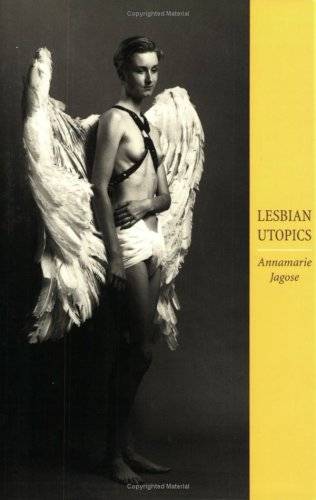Lesbian Utopics
Annamarie Jagose
Challenging the often unquestioned hegemony of gay studies over lesbian studies, Jagose provides a truly evocative and compelling theory of the lesbian. In drawing upon the work of such theorists as Eve Kosofky Sedgwick and Luce Irigaray, she suggestively articulates a theory of ‘lesbian’ spacew which symbolically exceeds the boundaries of understanding and comprehension. Jagose argues that the culturally constructed category of the ‘lesbian’–the symbolic logic of which goes beyond traditional cultural limits and regulations–is also simultaneously and, quite provocatively, also the product of those regimes of power. It is this explosive tension that Jagose emphasizes in her reading of various conceptions of the ‘lesbian.’ In examining this construction, Jagose surveys a diverse range of texts (sonnets, essays, and novels) spanning the cultural terrain of Mexico and Australia, the US and France. She concludes with a reading of Cindy Crawford as signifying the emergence of lesbian utopics within pop culture. common: they both represent the category ‘lesbian’ as a utopic space, one which exceeds structures of regulation. Lesbian Utopics argues that the ways in which ‘lesbian’ is used assumes the characteristics of a utopic site: one outside, and other than the norm, and has placed on it an excess of cultural legislation.
Reading a broad variety of works by five women (Irigaray, Nicole Brossard, Marilyn Hacker, Mary Fallon and Gloria Anzaldua, Annamarie Jagose makes the argument for ‘lesbian’ as not just an exterior and alterior category, but one which is produced by the very cultural laws whose mandate the category seems to defy and transcend. Using Foucault as a means of examining the texts, the author producesa reading which contends that ‘lesbian’ is emphatically interior to culture, produced by the mechanisms of proscripted heterosexuality.
Lesbian Utopics concludes that the illusion of ‘outside’-ness promised by the appelation of lesbian is in literal terms a utopic space: (ou-topos, no place.) This is an important, valuable and controversial addition to lesbian and gay studies, and should interest those in feminist theory and literary criticism.
Check for it on:
Details
| ISBN | 9780415910194 |
| Genre | Lesbian Studies |
| Publication Date | 14-Nov-94 |
| Publisher | Routledge |
| Format | Trade Paperback |
| No. of Pages | 224 |
| Language | English |
| Rating | NotRated |
| BookID | 7156 |

